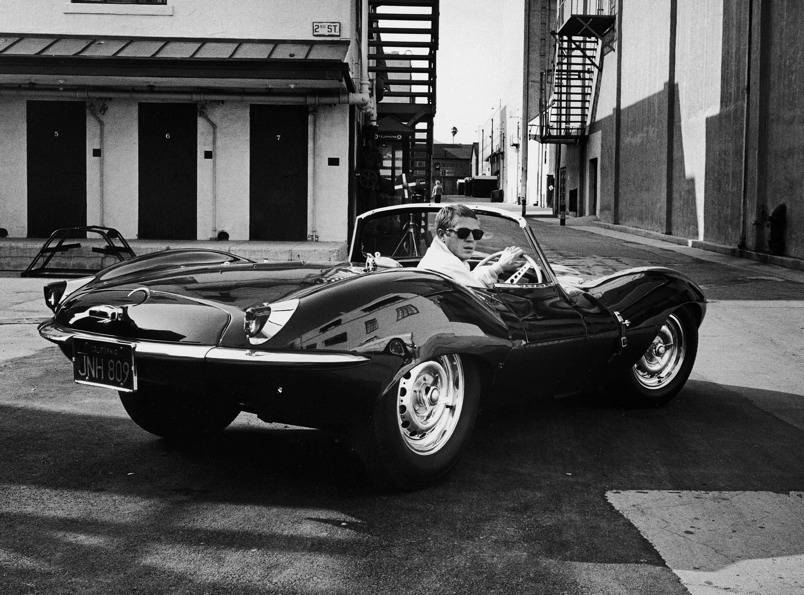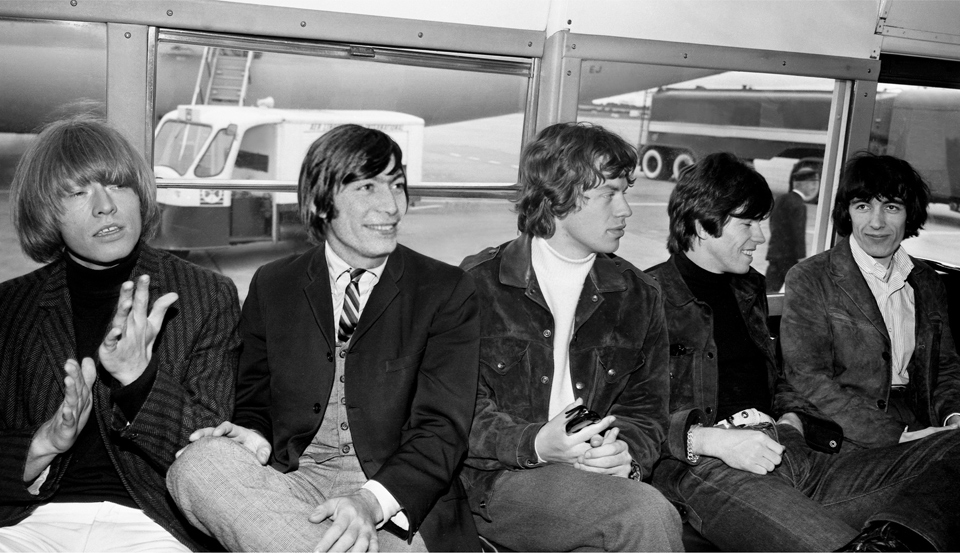Above from left: Mssrs. Jones, Watts, Jagger, Richards, and Wyman in Ireland, 1965.
One of my favourite film genres is music documentaries. They offer a fun insight into the bands, indulging us fans and giving us a glimpse of what went into a certain record or period of time in a band’s career. For me, one of the best music docs of all-time is “Charlie Is My Darling”. There have been a lot of documentary films made about The Rolling Stones over the years. From the seminal concert film “Gimme Shelter” to Robert Frank’s unreleased (but often bootlegged), down and dirty “Cocksucker Blues”, to the nearly unwatchable 2008 bloated disaster of a film by Martin Scorcese, “Shine A Light”. The Rolling Stones have had their magical career covered from every direction, but never so insightfully as in this not often seen film from 1965.
“Charlie is my Darling” follows the young Rolling Stones on a brief tour of Ireland in 1965, documenting a crucial time for the band. In effect it’s their coming of age film. Within 64 minutes, we see these five pasty young guys transitioning from one phase of life to another in a variety of ways. We watch as they slowly transform from a (very good) blues cover band to a band that writes their own songs, and not just songs, but huge hits. We also get to watch them coming to terms with their constantly exploding success, and they speak very candidly about it to the camera. The Rolling Stones, individually or as a unit, have never been known for their humility or their ability to relate to, or play well with, others. Mick Taylor, for example, allegedly quit the band due to Jagger and Richards refusal to credit him with any of his substantial songwriting contributions, and Keith Richards recent autobiography “Life” is loaded down with an insouciance that regularly veers into a profligate disconnect with the outside world, so much so that it even seems to extend to the death of his second child, “Oh well…”. Added up, perhaps this is what makes their comments throughout this film so striking. In particular, the two biggest characters within the band at the time, Brian Jones and Mick Jagger, are the most thoughtful and open about the phenomenon happening to them and around them simultaneously. They speak very honestly and openly about the surreal situation they find themselves in, the seemingly absurd privilege and the feelings of confinement that their new fame brings. Jagger in particular delineates the differences between himself as the performer and the person, in an honest and touching way that is all but absent only a few years later, in 1969, when “Gimme Shelter” was filmed.
http://www.youtube.com/watch?v=QJJ9rpdQ_lI
Beyond that, the young Rolling Stones are all rather charming and cool, and it’s undeniably fun to watch the teenage girls lose control of themselves during their shows, or the young boys rush the stage and push the band around, simply because the music has moved them to a point where they literally don’t know what else to do with themselves. On top of that the film was shot beautifully in black and white by Peter Whitehead in a loose, catch-as-catch-can style, so there really is something for everyone, whether you love the band, the social phenomena of the time, or just a great documentary film.
Up until recently, “Charlie Is My Darling” was another of the great “officially” unreleased movies about the Rolling Stones. Initially commissioned by their manager/producer at the time, Andrew Loog Oldham, it only existed in bootleg form or in snippets for a long time. Finally available widely, it’s well worth the hour. You can buy the DVD or stream the film on Amazon, on iTunes, or directly from the films website, as well.


